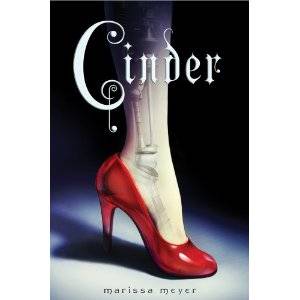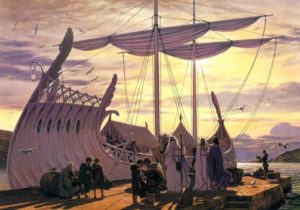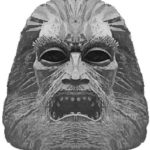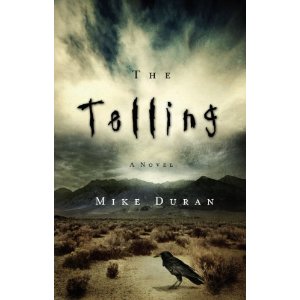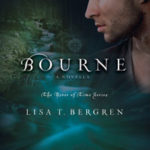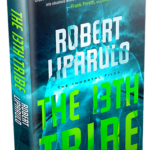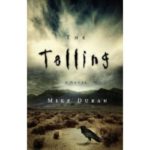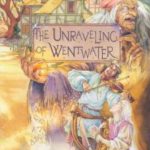Speculative Death: Spin The Wheel
Okay, itâs been a couple of weeks. Where were we?
To summarize, the spec-fic consensus is you canât cheat death in any meaningful sense because:
- Death is relentness and will catch up with you eventually, orâŠ
- Immortality (absent of God) is such a burden of empty meaninglessness, youâll waste away or do yourself in to escape it.
Hmm. What to do?
âThink, think, think,â quoth Pooh.
Voice: âBuddy, what you need is a reboot!â
Pooh looks up and discovers a pair of strange creatures standing a few feet away and smiling at him.
Pooh: âOh, bother. Youâve disturbed me in the middle of a think. I shall have to begin all over again. Who, may I ask, are you?â
Timon: âMy nameâs Timon, and my buddy here with the digestive issues is Pumbaa. We live on the African savannah a couple hundred acres south of the Hundred Acre Wood. Say hello, Pumbaa.â
Pumbaa: âHello, Pumbaa!â
Timon: âSheesh. Never mind.â
Pooh: âAre you, perchance, a heffalump and a woozle?â
Timon: âNo, Iâm a meerkat, and Pumbaa is a pig.â
Pumbaa: âIâm really a wild boar, but you can call me Mister Pig, if thatâs easier.â
Pooh: âOh, good. Iâm afraid of heffalumps and woozles, but you only make me feel confused. Whatâs this reboot thing you were talking about? I have no use for boots, being a bear.â
Timon: âYouâre worried about death and immortality, am I right?â
Pooh: âYes. Itâs a depressing think for a bear of very little brain such as myself. It makes my head hurt and my tummy rumble. You wouldnât happen to have brought along a jar of honey, would you?â
Pumbaa: âNo, but weâve got plenty of juicy bugs! Care for a centipede?â
Pooh: âNo, thank you.â
Pumbaa: âAre you sure? Câmon, try one! Itâs full of Vitamin C!â
Timon: âGetting back on topic, letâs accept that weâre finite beings with an immortal soul and just roll with it. Everybodyâs part of the Circle of Life. Weâre born, we live for a while, we die, and then the whole thing starts all over again.â
Pumbaa: âThatâs right! Hakuna Matata!â
Pooh: âCome again?â
Timon: âIt means âno worries for the rest of your days.â Itâs our problem-free philosophy.â
Pooh: âYou donât say. It sounds like something Owl would come up with. Exactly how long does this Circling of Life go on?â
Timon: âForever, or until you truly understand Hakuna Matata.â
Pooh: âAnd then what happens?â
Timon: âYou become one with the Circle of Life itself!â
Pumbaa: âAh, to be one with the Circle of Life! Itâs paradise, my friend.â
Pooh: âBother. It sounds tiring. If youâll excuse me, I think I shall go in pursuit of a nap, perhaps with a snackerel of honey beforehand. It may be that the answer to my question will come to me in a dream.â
Timon: âWell, if you change your mind, come on down to Pride Rock and look us up. Unless weâre dead.â
Pumbaa: âYeah, then we could be just about anything, right, Timon?â
Timon: âRight. I like to think Iâll come back as a fierce lion. Groowwlllrrrr!â
Pumbaa: âBut if you did that, you might eat me by mistake.â
Timon: âPumbaa, even the hyenas donât think youâre edible.â
Pumbaa: âOh. Thatâs a relief. Have a centipede. Hakuna Matata!â
Timon: âYum. Hakuna Matata right back atâcha, buddy!â
So, reincarnation. Hmm. You wonât find this approach in Christian spec-fic because Christianity is pretty clear about what happens after death. Thereâs a final judgment, then we proceed to our eternal reward, or penalty, as appropriate. No going back to the womb to try getting it better next time. Reincarnation also downplays the connection between soul and body that is much stronger in Christianity. For Christians, the body is an integral part of our identity as created beings. Christians look forward to resurrection in perfected bodies, but bodies that are uniquely identifiable as our very own. In religious systems that espouse reincarnation, itâs all about the soul. The body is just a container.
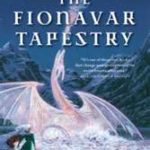 Reincarnation shows up in supernatural fictionand fantasy a lot, usually with some strangeness surrounding a character who turns out to be the reincarnation of someone who died tragically and has returned to set things right, or is cursed to repeat the same errors over and over again. Sometimes itâs star-crossed lovers doomed to pursue each other throughout eternity but never achieve happiness with each other. Guy Gavriel Kayâs Fionavar Tapestry tells the story of five college chums drawn into the magical world of Fionavar, who discover that some of them are reincarnations of mythic figures from legends that span both worlds.
Reincarnation shows up in supernatural fictionand fantasy a lot, usually with some strangeness surrounding a character who turns out to be the reincarnation of someone who died tragically and has returned to set things right, or is cursed to repeat the same errors over and over again. Sometimes itâs star-crossed lovers doomed to pursue each other throughout eternity but never achieve happiness with each other. Guy Gavriel Kayâs Fionavar Tapestry tells the story of five college chums drawn into the magical world of Fionavar, who discover that some of them are reincarnations of mythic figures from legends that span both worlds.
![]() Asian and Asian-themed fantasy, as you might expect, frequently employs reincarnation as a plot device. For example, the popular animated series, Avatar: The Last Airbender, features the adventures of Aang, a young man who is the latest incarnation of an eternal spirit which brings its worldâs forces of nature into balance and influences human society toward order and harmony. Aang can draw on the powers and wisdom of his predecessors, but discovers that’s not as simple as it sounds.
Asian and Asian-themed fantasy, as you might expect, frequently employs reincarnation as a plot device. For example, the popular animated series, Avatar: The Last Airbender, features the adventures of Aang, a young man who is the latest incarnation of an eternal spirit which brings its worldâs forces of nature into balance and influences human society toward order and harmony. Aang can draw on the powers and wisdom of his predecessors, but discovers that’s not as simple as it sounds.
 In science fiction, thereâs Roger Zelaznyâs Lord of Light, in which the command crew of an interstellar colony ship achieves immortality by transferring their essences into a succession of new bodies in a sort of technological reincarnation. They set themselves up after the fashion of the Hindu pantheon, each one taking on the role of a god or goddess. One member of the crew withdraws from their eternal divine bickering and their tyrannical rule over the descendants of the ordinary human colonists, who have long since forgotten their true origin. He founds a new religion, modeled after Buddhism, that stands in opposition to the Hindu status quo. Of course, not everyone is pleased about this.
In science fiction, thereâs Roger Zelaznyâs Lord of Light, in which the command crew of an interstellar colony ship achieves immortality by transferring their essences into a succession of new bodies in a sort of technological reincarnation. They set themselves up after the fashion of the Hindu pantheon, each one taking on the role of a god or goddess. One member of the crew withdraws from their eternal divine bickering and their tyrannical rule over the descendants of the ordinary human colonists, who have long since forgotten their true origin. He founds a new religion, modeled after Buddhism, that stands in opposition to the Hindu status quo. Of course, not everyone is pleased about this.
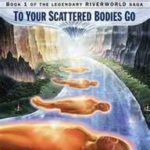 Phillip Jose Farmerâs To Your Scattered Bodies Go, and the succeeding volumes in his Riverworld series of novels opens with both famous and ordinary people from a variety of historical eras across human history awakening on the shore of an immense river, with most of their memories intact, save for any knowledge of where they are or how they got there. Is this heaven, hell, or something else? The people begin doing the sorts of things people doâbanding into communities, seeking power, fighting over limited resources, enslaving each other, developing technologies, and trying to figure out whatâs happened to them and whoâs responsible. They discover they can still die in this new world, but when theyâre killed, they reawaken on the shore of the river where they began. The protagonist bands together with a motley crew led by Mark Twain, who, naturally, is building a riverboat. Together, they set out on an expedition to discover the riverâs source and, perhaps, the answers to the mystery of their reincarnation.
Phillip Jose Farmerâs To Your Scattered Bodies Go, and the succeeding volumes in his Riverworld series of novels opens with both famous and ordinary people from a variety of historical eras across human history awakening on the shore of an immense river, with most of their memories intact, save for any knowledge of where they are or how they got there. Is this heaven, hell, or something else? The people begin doing the sorts of things people doâbanding into communities, seeking power, fighting over limited resources, enslaving each other, developing technologies, and trying to figure out whatâs happened to them and whoâs responsible. They discover they can still die in this new world, but when theyâre killed, they reawaken on the shore of the river where they began. The protagonist bands together with a motley crew led by Mark Twain, who, naturally, is building a riverboat. Together, they set out on an expedition to discover the riverâs source and, perhaps, the answers to the mystery of their reincarnation.
While reincarnation isn’t a Christian concept, it’s an idea that has certainly spawned a lot of creative, entertaining, and thought-provoking fiction. Harking back to Becky’s post yesterday, do these stories have any redeeming value, founded as they are on a view of the afterlife that most Christians would affirm is false?
I think so. None of these stories are tracts written for the purpose of convincing readers or viewers that reincarnation is true. They do pose a lot of questions about our human nature and spiritual life: How important is the body to our personhood? If we had the ability to “reboot” ourselves, would we repeat the same mistakes and end up at the same destination anyhow? What happens when human beings begin thinking of themselves as gods? For Christians, how does the influence of the Holy Spirit dwelling within us change our behavior? What is the meaning of the Incarnation? The fiction doesn’t provide definitive answers to these questions, but it can stir us to reflection on the truth.
Think, think, think.




































 Have you ever found a fascinating-looking book, at least judging from its cover, on a shelf â picked it up, admired, then flipped it over â then read something like this?
Have you ever found a fascinating-looking book, at least judging from its cover, on a shelf â picked it up, admired, then flipped it over â then read something like this?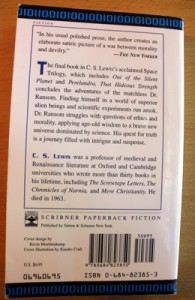
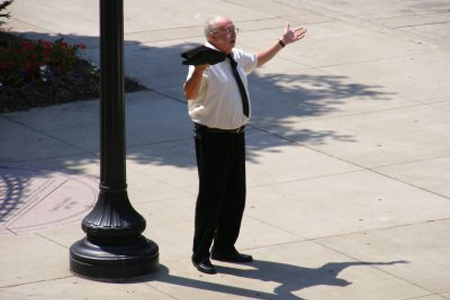

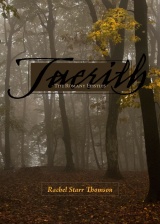




 Hi. Iâm Jill. My family moved to rural Alaska when I was five. We went from house to house those first few years. My dad was a carpenter and heâd get free rent as long as he was fixing up the places. When I was nine, Dad bought his own land. Our first house was a combination of a turquoise bullet trailer and what Dad called âthe hooch,â which was an almost see-through addition to the trailer made from a spindly pine tree frame that was covered in Visqueen â the stuff construction workers use to hold insulation in walls. Dad took more sappy pine trees and built a triple bunk bed in the hooch. Being the oldest, I got the top bunk. Iâd stay up until the middle of the night reading under that never-darkening Alaskan summer sky. I usually woke up from mosquitoes buzzing around my head or a twitching dragonfly that had somehow managed to get trapped between the Visqueen layers of the ceiling three feet from my face.
Hi. Iâm Jill. My family moved to rural Alaska when I was five. We went from house to house those first few years. My dad was a carpenter and heâd get free rent as long as he was fixing up the places. When I was nine, Dad bought his own land. Our first house was a combination of a turquoise bullet trailer and what Dad called âthe hooch,â which was an almost see-through addition to the trailer made from a spindly pine tree frame that was covered in Visqueen â the stuff construction workers use to hold insulation in walls. Dad took more sappy pine trees and built a triple bunk bed in the hooch. Being the oldest, I got the top bunk. Iâd stay up until the middle of the night reading under that never-darkening Alaskan summer sky. I usually woke up from mosquitoes buzzing around my head or a twitching dragonfly that had somehow managed to get trapped between the Visqueen layers of the ceiling three feet from my face.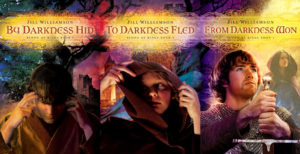 Iâve always love reading, especially teen fantasy. When the first Harry Potter movie came out, a huge debate started in our church as to whether or not the books were evil. I decided to write a book Christians wouldnât complain about. (I know. NaĂŻve, huh?) But once I started writing that novel I was hooked. Iâve been writing ever since.
Iâve always love reading, especially teen fantasy. When the first Harry Potter movie came out, a huge debate started in our church as to whether or not the books were evil. I decided to write a book Christians wouldnât complain about. (I know. NaĂŻve, huh?) But once I started writing that novel I was hooked. Iâve been writing ever since.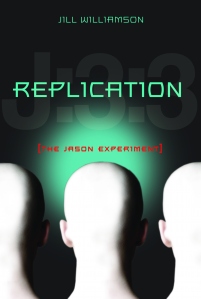 Since my spy kids story was driving me nuts, I wrote a book called Jason Farms. The same problem cropped up when it came to genre. Jason Farms is about a girl who discovers her father is working at a cloning lab. I was pretty sure this one had to be suspense. But wasnât it also science fiction? What were Double Helix by Sigmund Brouwer or Blood of Heaven by Bill Myer considered?
Since my spy kids story was driving me nuts, I wrote a book called Jason Farms. The same problem cropped up when it came to genre. Jason Farms is about a girl who discovers her father is working at a cloning lab. I was pretty sure this one had to be suspense. But wasnât it also science fiction? What were Double Helix by Sigmund Brouwer or Blood of Heaven by Bill Myer considered?
 In one clip, damage is going on and sheâs lying on some floor or platform, with shock and helplessness clear on her face. Later, Black Widow runs through an exploding hall, with the Hulk behind her (shielding her?). She grimaces and struggles, as debris and sparks rain down on them both.
In one clip, damage is going on and sheâs lying on some floor or platform, with shock and helplessness clear on her face. Later, Black Widow runs through an exploding hall, with the Hulk behind her (shielding her?). She grimaces and struggles, as debris and sparks rain down on them both.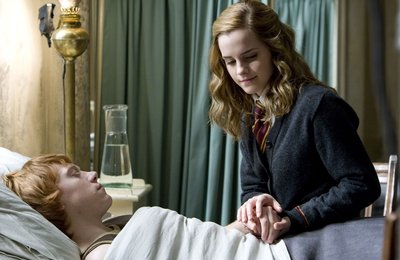 Harry Potter fans will instantly recognize the seven-book (and eight-film) seriesâs most popular female lead. Hermione is a brainy girl gifted with magical abilities, and quickly becomes the friend of Harry Potter, the seriesâs orphaned hero, and Ron Weasley.
Harry Potter fans will instantly recognize the seven-book (and eight-film) seriesâs most popular female lead. Hermione is a brainy girl gifted with magical abilities, and quickly becomes the friend of Harry Potter, the seriesâs orphaned hero, and Ron Weasley. First, there was this convention: the Doctorâs female companion is supposed to form a killer crush on the time-traveling Time Lord. To be sure, one of the Doctorâs recent companions, Donna, made it clear she would not repeat that nonsense. But then Amy Pond directly came onto the Doctor in a cringe-worthy scene that at first made me sure the series had jumped the flying shark. But not so fast! In the next episode, the Doctor takes action. He will have none of that again, thank you very much. Instead he picks up Rory Williams, Amyâs boyfriend, and whisks them both away to 1580 Venice. By the seasonâs end, the two are married. They honeymoon, stay in love, and have a child. And in later stories, threats that Amy will resume her crush on the Doctor come to nothing.
First, there was this convention: the Doctorâs female companion is supposed to form a killer crush on the time-traveling Time Lord. To be sure, one of the Doctorâs recent companions, Donna, made it clear she would not repeat that nonsense. But then Amy Pond directly came onto the Doctor in a cringe-worthy scene that at first made me sure the series had jumped the flying shark. But not so fast! In the next episode, the Doctor takes action. He will have none of that again, thank you very much. Instead he picks up Rory Williams, Amyâs boyfriend, and whisks them both away to 1580 Venice. By the seasonâs end, the two are married. They honeymoon, stay in love, and have a child. And in later stories, threats that Amy will resume her crush on the Doctor come to nothing.